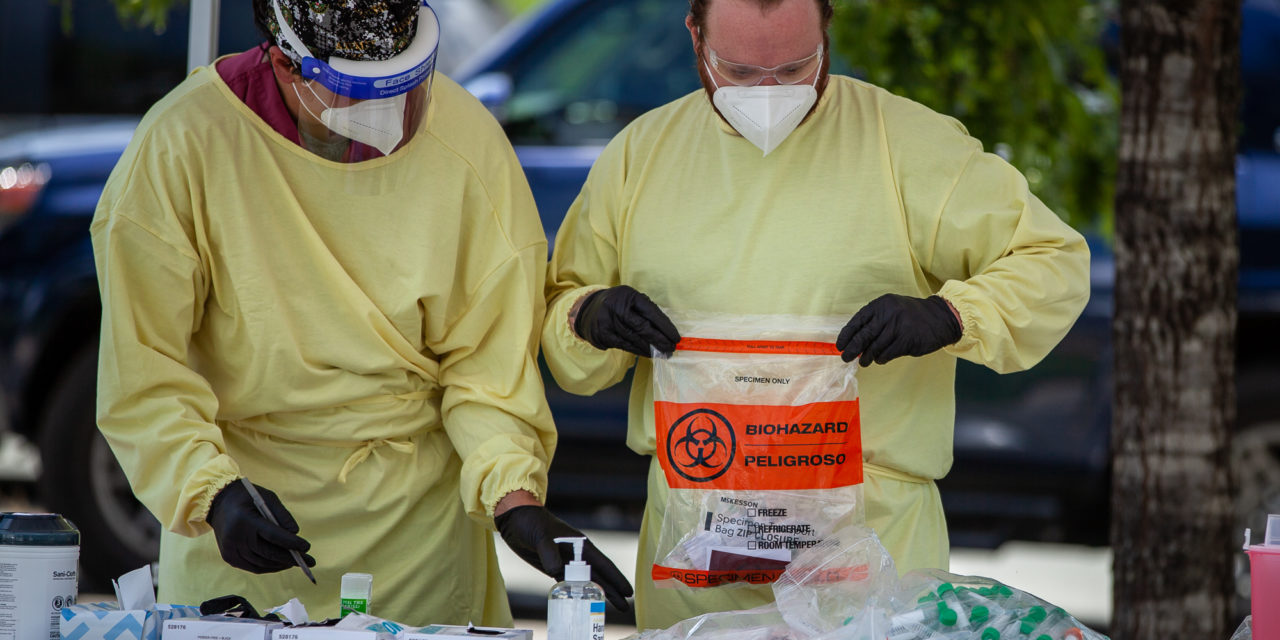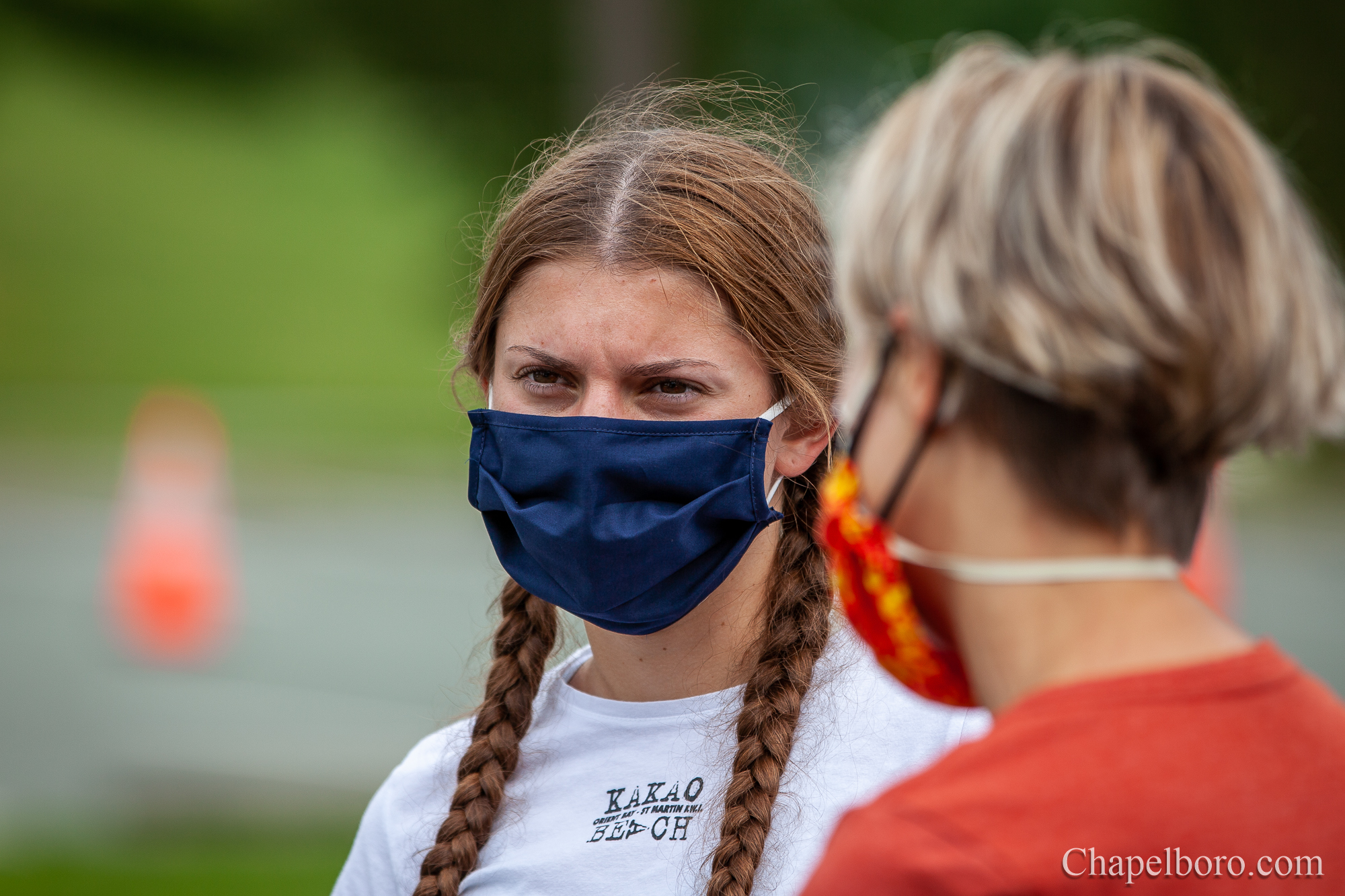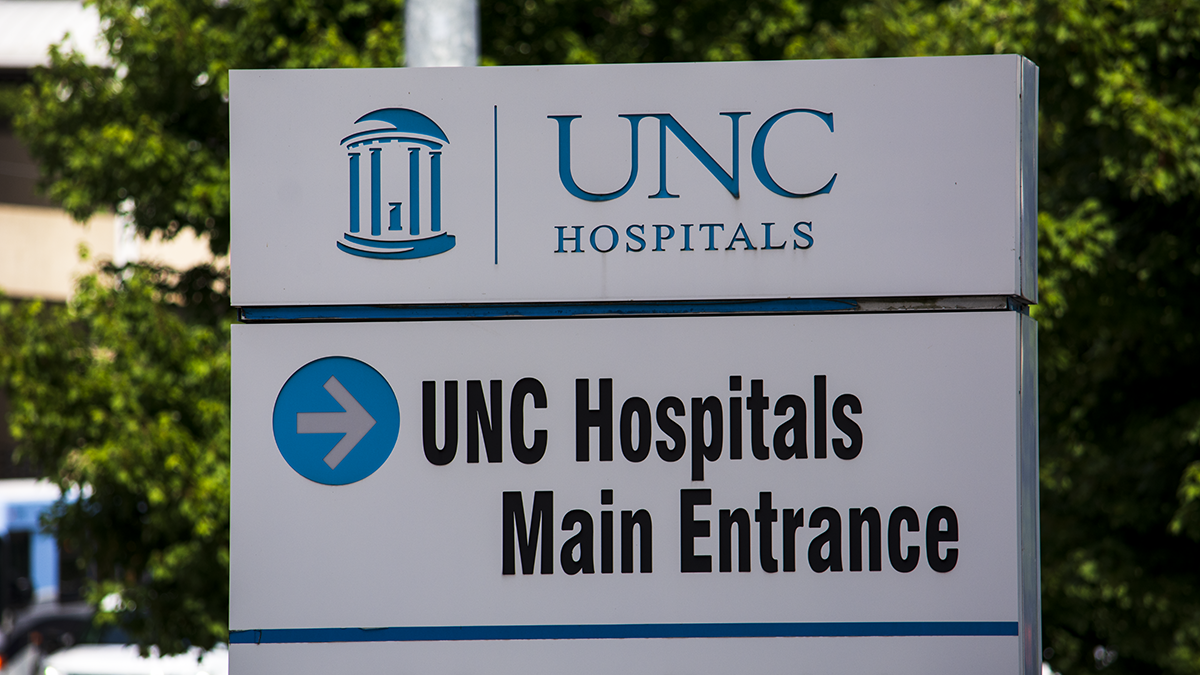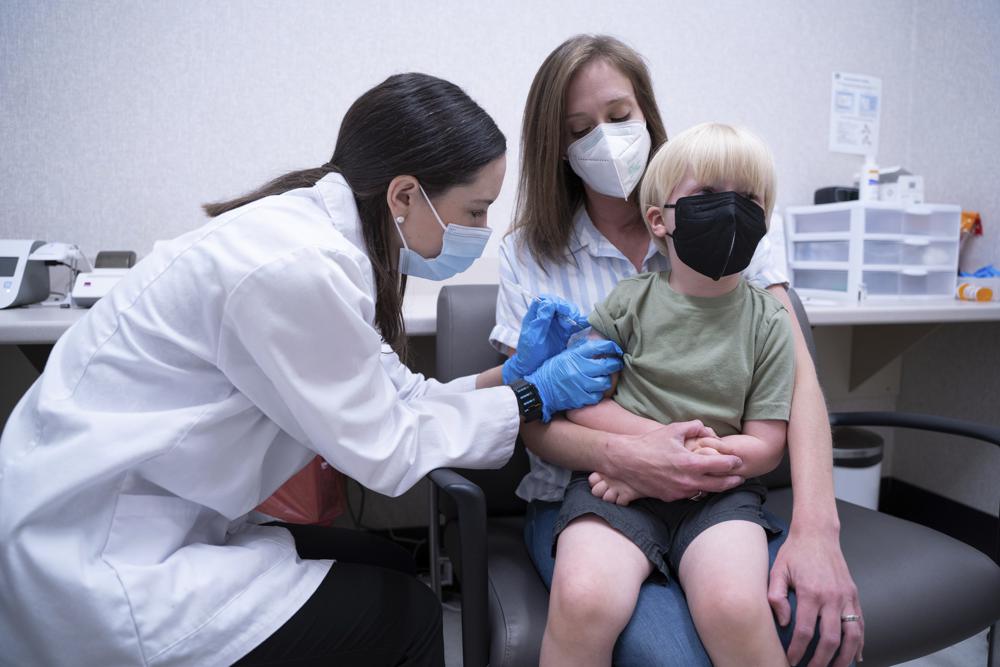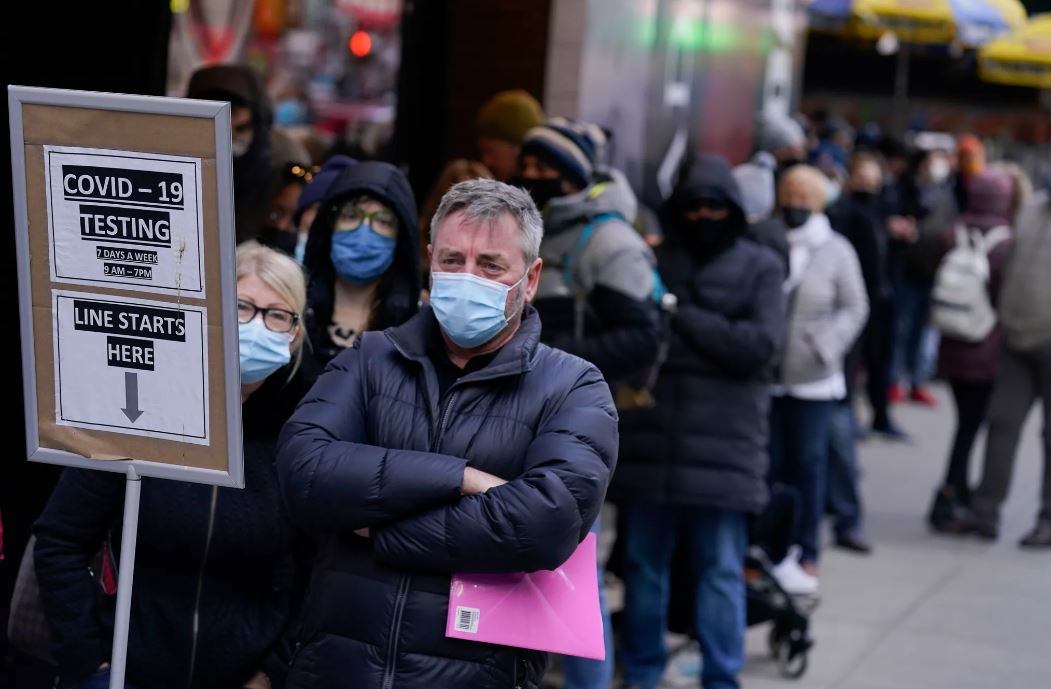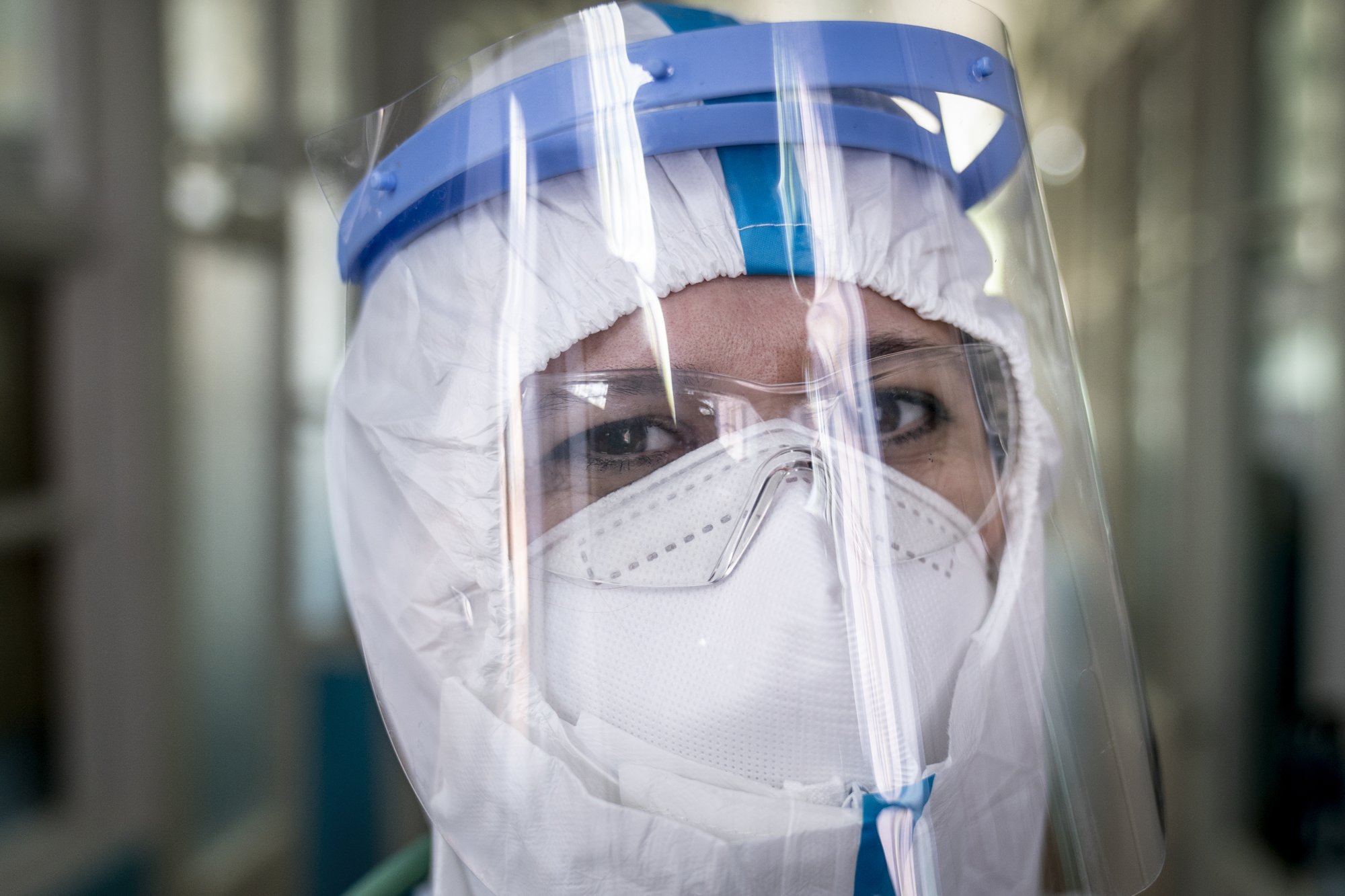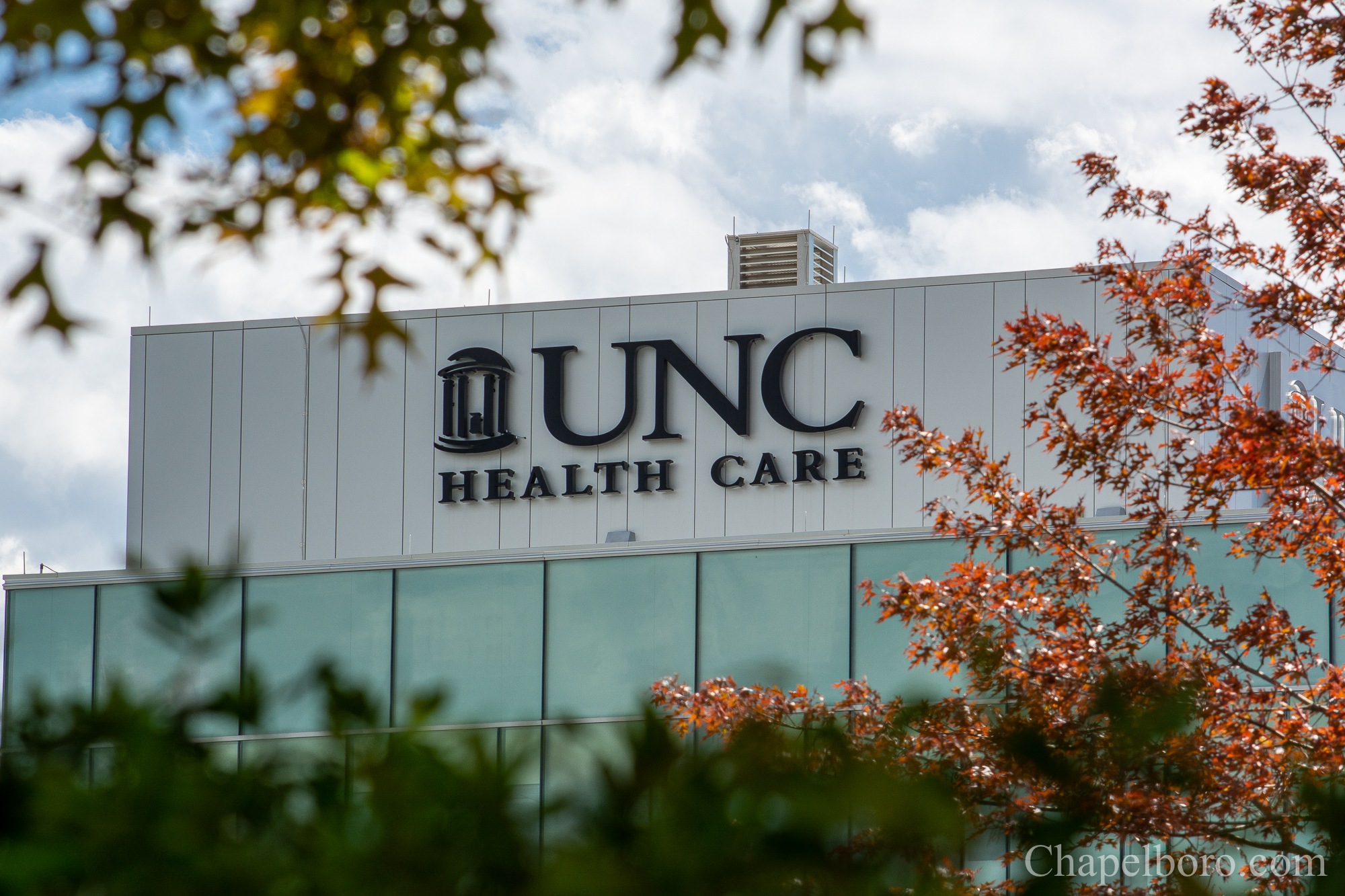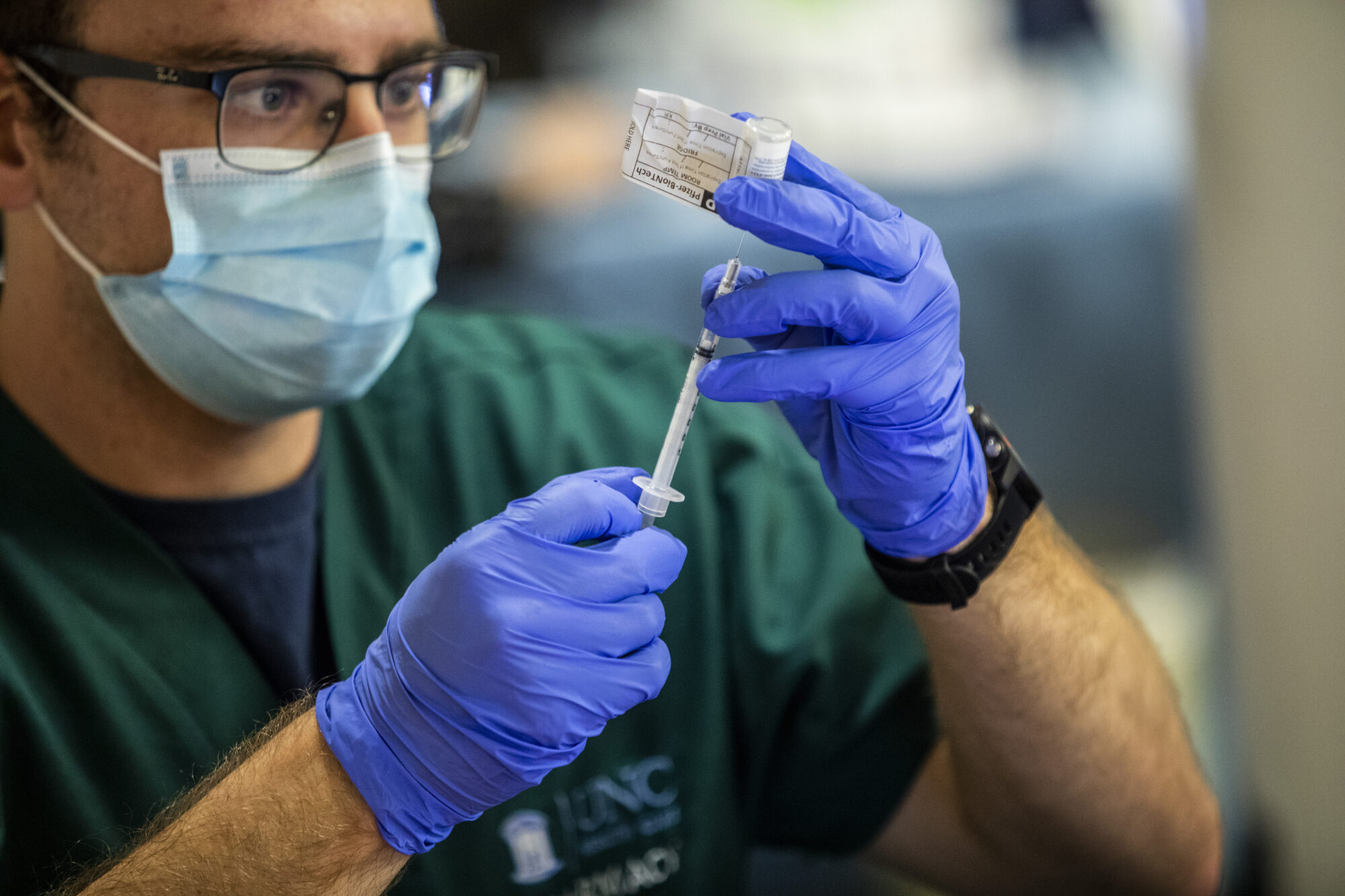When thinking about what activities are safe to do amid loosening pandemic restrictions, one infectious disease expert said it’s important to focus on wellness and to always think about what can be done to stop virus transmission.
Dr. Emily Sickbert-Bennett is one of UNC Health’s leading Infection Prevention and Infectious Diseases experts. She has also been a key contributor to UNC Health’s series, “IS IT SAFE?” published on the UNC HealthTalk website.
When talking about risk factors for everyday activities, Sickbert-Bennett said it’s first important to talk about how the virus is most likely to be transmitted.
As the number of coronavirus cases in North Carolina continues to peak, she said everyone needs to keep in mind four key things to break the chain of transmission.
“In infectious diseases, we think about a whole chain of events that has to happen in order for transmission to occur and how do we break that transmission,” Sickbert-Bennett said.
The four ways infectious disease experts have concluded will break the chain include staying home when you’re sick, wearing a mask, physical distancing and washing your hands.
Sickbert-Bennett said in the spring we turned everything off with shut downs and closures across the board, but now that some restrictions are loosening and businesses continue to open back up, she said we need to think about what’s most important.
“Now as things begin to reopen we have to think about how we dial back in to some of those activities – thinking about what’s most important for you and your family and then how to do those activities safely – knowing the best ways to interrupt the chain of transmission,” Sickbert-Bennett said.
Sickbert-Bennett said they had a good sense early on about how the coronavirus is transmitted and what activities were more safe for the public to participate in – and that still holds true today.
But she does think the medical field needs to fine tune it’s messaging on what safety practices are most important and what is actually risky when it comes to transmission of the virus.
For example, virus transmission stemming from touching a contaminated object, otherwise known as fomite transmission or surface contamination, is not very likely.
“If you think about the whole chain of transmission that needs to happen for a contaminated item to make you sick, it’s actually very clear that that’s not what we need to be focusing on,” Sickbert-Bennett said.
For a contaminated object to get you sick, the infectious virus would have to survive on that surface long enough for you to touch it in the exact right location, and then have it survive on your hand long enough for it to come in contact to your mouth or nose.
While rare, Sickbert-Bennett said these instances shine a light on yet another benefit of masking – when said masks can prevent inadvertent contact if you were to carry the virus on your hand.
Finally, as we move forward and try to find some semblance of normalcy amid the pandemic, Sickbert-Bennett said the public needs to focus on the idea of wellness – and to know that the coronavirus and its related symptoms can present very differently in every person.
“So it’s really important, especially at family gatherings to just be so honest and so open and really tell the family that’s involved ‘We love to see you, we want to see you, but not when you’re not feeling well,’” Sickbert-Bennett said. “If anything doesn’t feel great, that’s not the time to go to a family gathering, that’s not the time to do grocery shopping and that’s certainly not the time to go to work.”
For more information on UNC Health’s “IS IT SAFE?” series, in regards to what activities are considered to be high and low risk, visit their website here.
Chapelboro.com does not charge subscription fees. You can support local journalism and our mission to serve the community. Contribute today – every single dollar matters.

